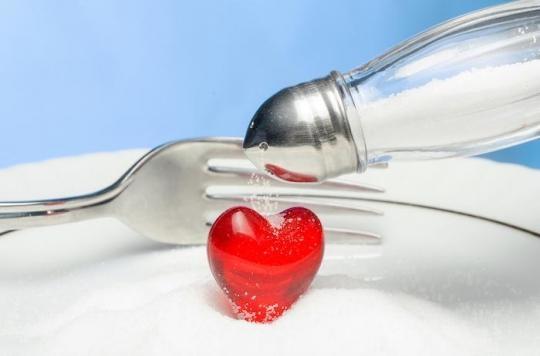A new study shows that a healthy and balanced diet is not enough to compensate for the negative influence of too much salt consumption on blood pressure. High blood pressure is the number one cause of cardiovascular and kidney disease.

In this study, the diets of 4,680 people were analyzed over 4 days. Participants, aged 40 to 59, were recruited from the US, UK, Japan and China. The results are published in the journal Hypertension.
An increase of 7 grams of salt (1.2 teaspoon) above the required intake was associated with an increase in blood pressure of 3.7 mmHg.
Vitamins and minerals versus salt?
Researchers previously believed that the vitamins and minerals in fruits and vegetables could counteract the damaging effects of high salt intake, and lower the pressure in the arteries. The study conducted by Imperial College London suggests this is not the case.
Eating higher amounts of salt can give you higher blood pressure no matter how healthy your overall diet is, a new study from @ImperialSPH reveals https://t.co/KmN8xUub9C pic.twitter.com/9R6n61jccc
– Imperial College (@imperialcollege) March 5, 2018
Its results show a clear association between hypertension and high salt intake, even in people with a healthy and balanced diet. Researchers are now advising different populations to control their salt intake and urging manufacturers to lower the salt content in their food products.
Different results depending on the country
In the UK, the recommended upper limit of salt intake for adults is 6 g per day. The study finds that the average salt consumption within the study is 10.7 g per day on average, with more precisely an average consumption of 8.5 g for the United Kingdom, 9.6 g for the USA, 13.4 g for China and 11.7 g for Japan.
Researchers now want to conduct longer-term studies on a larger number of people.

.














